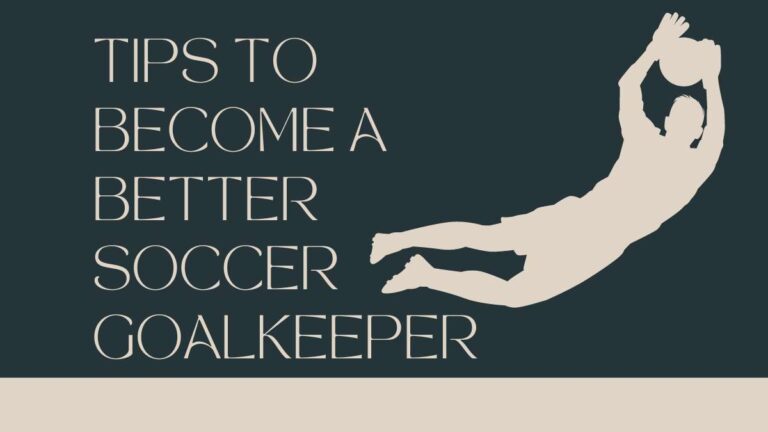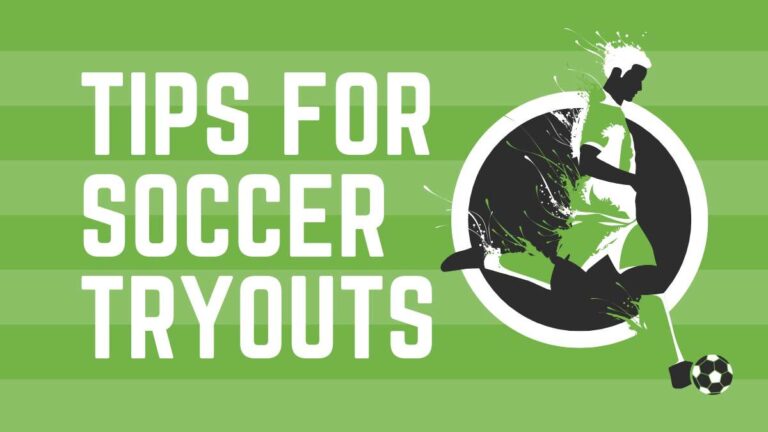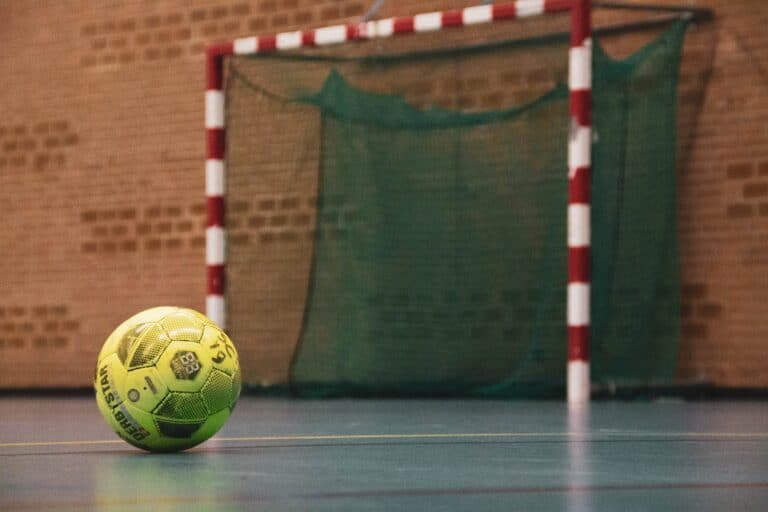How to Excel in Your Chosen Soccer Position – 5 Simple Steps
Soccer is a team sport that requires players to work together to achieve a common goal. Each player on the team has a specific position with unique responsibilities and requirements. To be successful in soccer, it’s essential to excel in your chosen position. If you want to get better as a soccer player in general, make sure to read how to get better at soccer.
Whether you’re a striker, midfielder, defender, or goalkeeper, understanding the role of your position and mastering the necessary skills are crucial to your success on the field.
In this blog, we’ll outline five simple steps that can help you excel in your chosen soccer position. From understanding the role of your position to developing position-specific skills, building fitness and endurance, and studying the game, these steps will give you the tools you need to take your game to the next level. Let’s get started!
Step 1: Understand the Role of Your Position
To excel in your chosen soccer position, you must first understand the role of your position on the team. If you’re unsure about what soccer position to choose, you might want to read our article on how to find your perfect soccer position.
Each position has unique responsibilities and requires specific skills. Here’s a breakdown of the responsibilities and skills required for each position:
Striker
The striker is responsible for scoring goals and creating scoring opportunities. They need to be skilled at dribbling, shooting, and passing and have excellent positioning and movement off the ball.
Midfielder
The midfielder is the engine room of the team, responsible for controlling the tempo of the game and connecting the defense and attack. They need to have excellent passing, dribbling, and tackling skills, as well as the ability to read the game and make quick decisions.
Defender
The defender’s primary responsibility is to prevent the opposition from scoring goals. They need to have excellent tackling, marking, and positioning skills and be able to communicate effectively with their teammates.
Goalkeeper
The goalkeeper is responsible for stopping the opposition from scoring goals. They need to have excellent reflexes, be skilled at diving and catching, and they should also have excellent communication and leadership skills.
Once you understand the responsibilities and skills required for your position, it’s time to study the position in-depth. To do so, you can watch videos of professional players in your position, read articles, and talk to coaches and experienced players. By studying your chosen position, you’ll gain a deeper understanding of what it takes to excel in your role and be better prepared to meet the demands of the game.
Step 2: Master the Fundamentals

To excel in soccer, it’s essential to master the fundamental skills required for the game. These skills include dribbling, passing, shooting, tackling, and positioning. Here’s an explanation of these essential skills:
- Dribbling: Dribbling is the ability to move the ball with your feet while maintaining control. It’s a critical skill for players in all positions.
- Passing: Passing is the ability to move the ball to a teammate accurately. It’s essential for midfielders and strikers to create scoring opportunities.
- Shooting: Shooting is the ability to strike the ball toward the goal with power and accuracy. It’s crucial for strikers to score goals and midfielders to take shots from a distance.
- Tackling: Tackling is the ability to dispossess the opponent and gain possession of the ball. It’s a crucial skill for defenders and midfielders.
- Positioning: Positioning is the ability to maintain the correct position on the field. It’s crucial for all players to ensure that they are in the right position to receive the ball or defend.
To master these fundamental skills, it’s important to practice drills and exercises that improve your technique. For example, for dribbling, you could practice dribbling around cones or practice moving the ball in tight spaces. For passing, you could practice passing drills with a teammate or against a wall. For shooting, you could practice taking shots from different angles or distances. For tackling, you could practice one-on-one drills with a teammate. And for positioning, you could practice positioning drills that simulate game scenarios.
The key to mastering these fundamental skills is repetition and practice. You need to dedicate time to practice these skills every day and work on improving your technique. By doing so, you’ll develop muscle memory and instinctual reactions that will help you perform these skills without thinking during a game.
Step 3: Develop Position-Specific Skills
In addition to mastering the fundamental skills, it’s also important to develop position-specific skills to excel in your chosen soccer position. Here’s an explanation of the unique skills required for each position:
- Striker: Strikers need to be skilled at finishing, which involves shooting accurately and with power. They also need to be skilled at making runs behind the defense and holding up the ball to create scoring opportunities.
- Midfielder: Midfielders need to be skilled at passing accurately and quickly, as well as making runs into the box to score goals. They also need to be skilled at defending and breaking up the opposition’s play.
- Defender: Defenders need to be skilled at marking, tackling, and intercepting the ball. They also need to be able to play out from the back and initiate attacks.
- Goalkeeper: Goalkeepers need to be skilled at shot-stopping, which involves diving and catching the ball. They also need to be able to communicate effectively with their defenders and be skilled at playing the ball out from the back.
To develop position-specific skills, it’s important to practice drills and exercises that focus on those skills. For example, for strikers, you could practice shooting drills, finishing drills, and one-on-one attacking drills. For midfielders, you could practice passing drills, shooting drills, and defending drills. For defenders, you could practice marking and tackling drills, as well as passing and attacking drills. And for goalkeepers, you could practice shot-stopping drills, communication drills, and distribution drills.
It’s also essential to be versatile in your playing style. While it’s important to focus on developing position-specific skills, it’s also crucial to have a well-rounded game. Being versatile means being able to adapt to different situations and play in different positions if needed. This versatility can make you a more valuable player and give you an advantage over others who can only play one position.
Step 5: Study the Game

To excel in soccer, it’s crucial to understand the game and be able to read the play. Here’s an explanation of the importance of understanding the game:
- Anticipating and reacting to the play: When you understand the game, you can anticipate what’s going to happen next and react quickly. This can give you an edge over your opponents and help you make the right decisions on the field.
- Making tactical adjustments: When you understand the game, you can make tactical adjustments during the game to counter your opponent’s strengths and exploit their weaknesses. This can help you and your team win games.
- Improving your overall game: When you understand the game, you can improve your overall game by learning from others and applying new strategies and techniques.
To study the game, it’s important to watch and analyze games. When you watch games, pay attention to the players in your position and the strategies used by both teams. Analyze the game and try to understand why certain plays worked or didn’t work.
Another important aspect of studying the game is learning from mistakes. No one is perfect, and everyone makes mistakes. It’s important to learn from those mistakes and use them as opportunities to improve your game. Analyze what went wrong and what you could have done differently. Focus on learning from mistakes and applying those lessons to future games.
In conclusion, by following these five simple steps, you can excel in your chosen soccer position. It’s important to understand the role of your position, master the fundamentals, develop position-specific skills, stay fit and healthy, and study the game. By focusing on these areas and dedicating time and effort to improve your game, you can become a skilled and successful soccer player.
Final Thoughts
Becoming a skilled soccer player requires dedication, hard work, and a willingness to learn and improve. By following the five steps outlined in this article, you can improve your skills and excel in your chosen position. Remember to understand the role of your position, master the fundamentals, develop position-specific skills, stay fit and healthy, and study the game.
It’s important to stay focused on your goals and work hard to achieve them. Set realistic goals for yourself and work towards them with dedication and perseverance. Remember that success doesn’t come overnight, but with consistent effort and dedication, you can achieve your goals.
In addition to hard work, it’s important to enjoy the game and have fun while playing. Soccer is a team sport, and it’s important to build strong relationships with your teammates and enjoy playing together. Remember to have a positive attitude, be a good teammate, and show sportsmanship both on and off the field.
In conclusion, becoming a skilled soccer player requires effort, dedication, and a willingness to learn and improve. By following the steps outlined in this article and staying focused on your goals, you can excel in your chosen position and become a successful soccer player.
Frequently Asked Questions (FAQs)
- How can I stay motivated and focused on my goals as a soccer player?
Staying motivated and focused on your goals requires discipline, determination, and a clear vision of what you want to achieve. One way to stay motivated is to set realistic and achievable goals for yourself. Break these goals down into smaller steps that you can accomplish on a daily, weekly, or monthly basis. Celebrate your accomplishments along the way to keep yourself motivated.
When setbacks or challenges arise, use them as learning opportunities and find ways to stay positive and focused. Also, make sure to surround yourself with supportive people who encourage and challenge you to be your best. Finally, stay committed to your training and practice regularly to continue improving your skills.
- How can I build strong relationships with my teammates?
Building strong relationships with your teammates is crucial for a successful soccer team. Effective communication is key. Speak to your teammates in a clear and respectful manner, and listen actively to their feedback. Show your support for your teammates by working hard for the team and participating in team activities.
Make an effort to get to know your teammates outside of practice and games by attending social events or organizing team activities. Finally, be a good listener and show respect for your teammates’ opinions and ideas.
- How can I improve my communication skills in the field?
Effective communication is crucial in soccer. To improve your communication skills on the field, speak clearly and concisely. Use positive language and make eye contact with your teammates when speaking to them. Listen actively to your teammates’ feedback and respond appropriately. Give and receive feedback in a respectful and constructive manner.
Finally, be aware of your body language and non-verbal cues, as they can also communicate important information to your teammates.
Like what you’ve read? Make sure to also read our article on how to improve your stamina as a soccer player.







